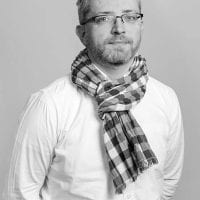István Povedák, Associate Professor, Institute for Theoretical Studies, Moholy-Nagy University of Art and Design, Budapest; and President, Hungarian Cultural Anthropology Association. His research fields include modern mythologies, celebrity culture, conspiracy theories, UFO culture, religious neo-nationalism, ethnic paganism, and Romani culture in Hungary.
It is well known that the concept of folklore has always had a close relationship with politics, since its emergence as a field of study in the mid-19th century. There have been political movements (such as nationalism) that have relied heavily on informal, folkloric tropes and vernacular knowledge. For instance, in the 19th century, folklore played an essential role in the birth of nationalism and nation-states; in shaping collective national identity; and in laying its cultural foundations. But there also have been periods (e.g., during communist regimes) when ideologists of the state viewed folklore as a historical remnant to be placed in museums; in other cases, political authorities even considered the living manifestations of folk culture (like folk dances, folk religion, folk beliefs) as politically dangerous and enacted restrictions of folkloric expression.
In recent years, a new trend has emerged in the political use of folklore. With the rise of neo-nationalist movements, certain forms of folklore have become increasingly utilized in everyday culture and politics. A contemporary case study is provided by Hungary, which has become a stronghold of neo-nationalism and populism, where the increasingly radical authoritarian government led by Viktor Orbán attempts to use folklore and mythology as a tool to support its ideology. In this presentation, I will analyze the political use of folklore in Hungary and discuss the possible distortions and falsehoods that may result in the historical memory and collective identity of a people and nation.
What resources and intellectual tools may folklorists and other cultural theorists use to confront this professionally and politically risky situation?
